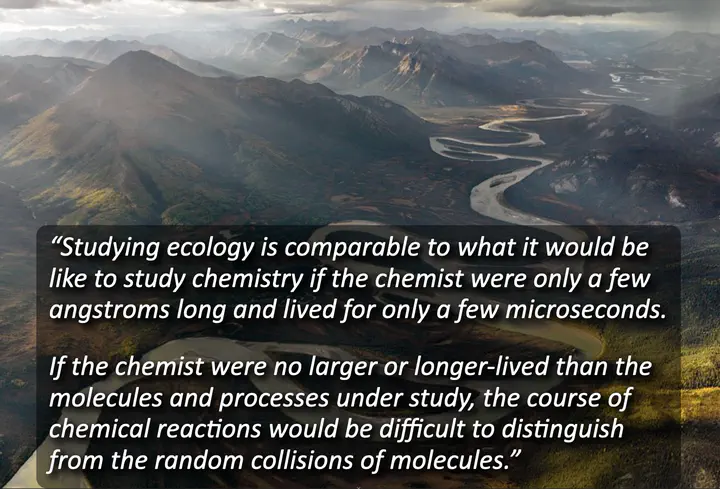Ecology (BI370)

Course description
This ecology course consists of an introduction to the scientific study of the processes that shape the distribution, structure and dynamics of species and their communities. Topics include the methods and approaches of ecological research, the interactions between species and their abiotic and biotic environments, the distribution of biodiversity across the globe, the processes regulating population growth, species extinctions and invasions and their implications for conservation and the maintenance of ecosystem services, and the varied and profound impacts of humans on ecological systems.
Course objectives
By the end of this course, you will be able to: (i) discuss how organisms interact with their biotic and abiotic environments, (ii) infer the processes that structure patterns of biodiversity from local to global scales, (iii) explain how ecological systems are dynamic in space and time based on knowledge of process, (iv) evaluate climate change and the future of biodiversity in the context of Earth’s past record of climate and life, (v) inform others of how anthropogenic activities are impacting the structure and functioning of natural systems, (vi) valuate alternative strategies for the conservation of biodiversity and ecosystem services, and (vii) describe the fundamental role of quantitative reasoning (statistics and modeling) in ecology.